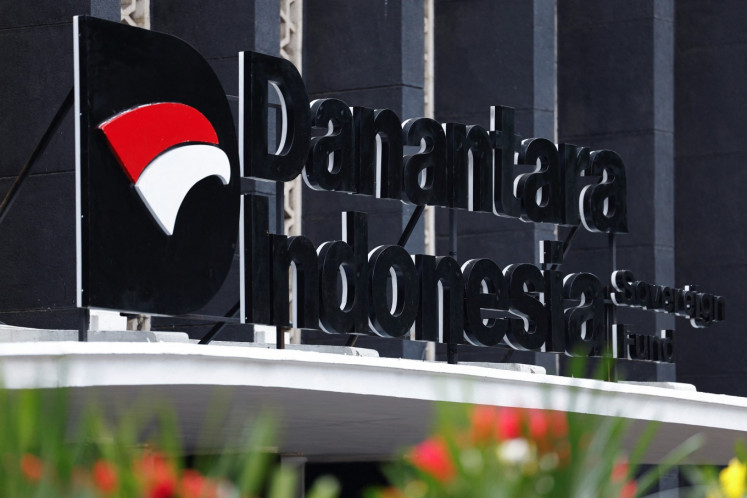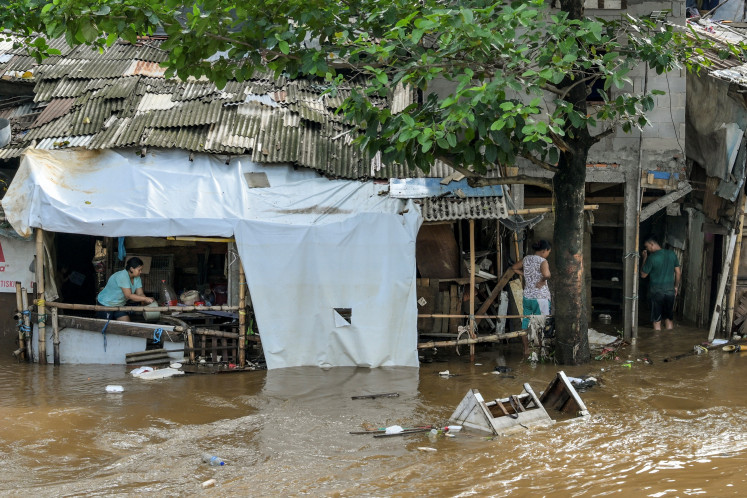Popular Reads
Top Results
Can't find what you're looking for?
View all search resultsPopular Reads
Top Results
Can't find what you're looking for?
View all search resultsPro-IS deportees help radicalize West Sumatra groups: IPAC
A new report from the Institute for Policy Analysis of Conflict (IPAC) found that Islamic State (IS) supporters who were deported while trying to join the extremist group played a major role in radicalizing neighborhood religious study groups in West Sumatra
Change text size
Gift Premium Articles
to Anyone
A new report from the Institute for Policy Analysis of Conflict (IPAC) found that Islamic State (IS) supporters who were deported while trying to join the extremist group played a major role in radicalizing neighborhood religious study groups in West Sumatra.
The report, titled Learning From Extremists in West Sumatra, followed two groups in Padang and Bukit Tinggi in West Sumatra that grew from branches of pro-sharia advocacy groups into pro-IS cells.
Both of the groups had members who had businesses in Tanah Abang market, Central Jakarta. In the market, the members came in touch with leading extremist clerics and invited them back to Sumatra.
“Through these Jakarta-based friends, the groups were introduced to some of the highest-profile preachers in the extremist community,” the report said.
The Padang group in particular was largely influenced by pro-IS deportees who were forced to return to Indonesia.
Saifullah, a Padang native, had met an Acehnese man named Muhammad Aulia while stuck in a safehouse in Turkey waiting for the chance to cross over to Syria in 2015. The two men were deported in 2016.
Saifullah left for Afghanistan in 2017 and acted as “a communications hub” between pro-IS extremist groups in Indonesia and the IS “province” in Khorasan. He was later implicated in the 2019 Jolo Cathedral bombings, which were conducted by an Indonesian couple who were in contact with him.
Aulia, meanwhile, led a group of 11 Indonesians in an attempt to leave for Afghanistan in 2019 but was stopped in the Bangkok airport in Thailand and was deported again. He and his followers were arrested upon their return to Indonesia.
“The combination of frustration at not achieving their goal, undiminished zeal with lack of exposure to the realities of the situation in Syria — not only constant bombing but also corruption and in some cases, discrimination against non-Arabs — and the difficulties of having to start life again with no resources all become reasons for returning to extremist activities,” the report said.
“The West Sumatra study calls into question the wisdom of the Indonesian government’s approach of treating radicalism as a problem of insufficient nationalism, curable by indoctrination in the state ideology, Pancasila,” IPAC director Sidney Jones said in a press release about the report on Friday.
“The problems here were more concrete: a mosque that hosted extremist discussions for more than a decade without any attention from local authorities and deportees from Turkey who returned home without sufficient monitoring.”
Jones added that the government still lacked an effective rehabilitation, reintegration and monitoring program for deportees and should take steps to remedy that.
“Knowing how deportees have fared even several years after their return could help in the development of programs for future returnees,” she said.
The government has said that radicalism is one of the biggest existential threats to the state and has recently announced that it will not repatriate the nearly 700 Indonesian citizens who joined the IS movement.










